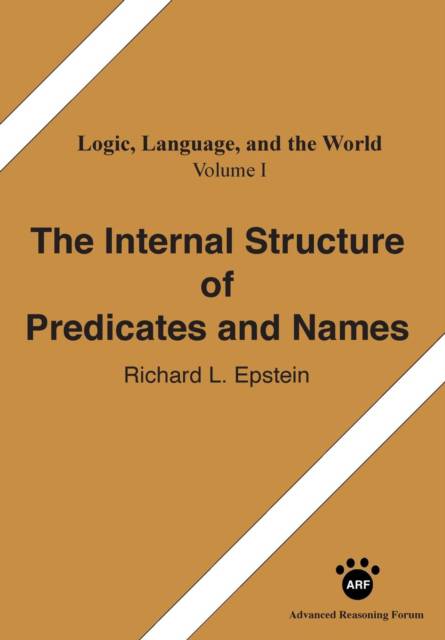
- Retrait gratuit dans votre magasin Club
- 7.000.000 titres dans notre catalogue
- Payer en toute sécurité
- Toujours un magasin près de chez vous
- Retrait gratuit dans votre magasin Club
- 7.000.0000 titres dans notre catalogue
- Payer en toute sécurité
- Toujours un magasin près de chez vous
Description
This series of volumes is meant to extend the scope of what we can formalize in classical predicate logic, and in doing so see the real limitations of what can be done.
The first section of this volume presents classical predicate logic with equality.
In the second section. that logic is extended to formalize reasoning that involves adverbs and relative adjectives by viewing those as modifiers of simpler predicates. What is normally taken to be an atomic predicate, such as "barking loudly", can then have internal structure. Reasoning that involves conjunctions of terms, as in "Tom and Dick lifted the table", conjunctions of modifiers, conjunctions of predicates, and disjunctions of predicates can also be formalized by viewing them as part of the internal structure of atomic predicates. Many questions about the nature of formalizing arise in doing this.
The internal structure of names is the topic of the third and last section. First, names for functions are used in classical predicate logic to form complex names. In our ordinary reasoning we also use descriptions to form functions, such as "the wife of ", and descriptions to form names, such as "the cat that scratched Zoe". To reason with those we can take account of their internal structure by dropping the assumption that every name must refer to a specific thing.
The formal systems that are developed here are not just formalisms but are meant to help us understand how to reason well. Many worked examples show how to use them. Those examples also uncover limitations of the formal work. Throughout this series of volumes, the work proceeds by abstracting and creating formal models to formalize reasoning. By paying attention to the process of abstracting we gain insight into why we consider some reasoning to be good and some reasoning bad, and insight also into the deeper assumptions we make about the world on which our judgments rely.
Spécifications
Parties prenantes
- Auteur(s) :
- Editeur:
Contenu
- Nombre de pages :
- 300
- Langue:
- Anglais
- Collection :
- Tome:
- n° 1
Caractéristiques
- EAN:
- 9781938421310
- Date de parution :
- 21-12-16
- Format:
- Livre broché
- Format numérique:
- Trade paperback (VS)
- Dimensions :
- 170 mm x 244 mm
- Poids :
- 482 g

Les avis
Nous publions uniquement les avis qui respectent les conditions requises. Consultez nos conditions pour les avis.






